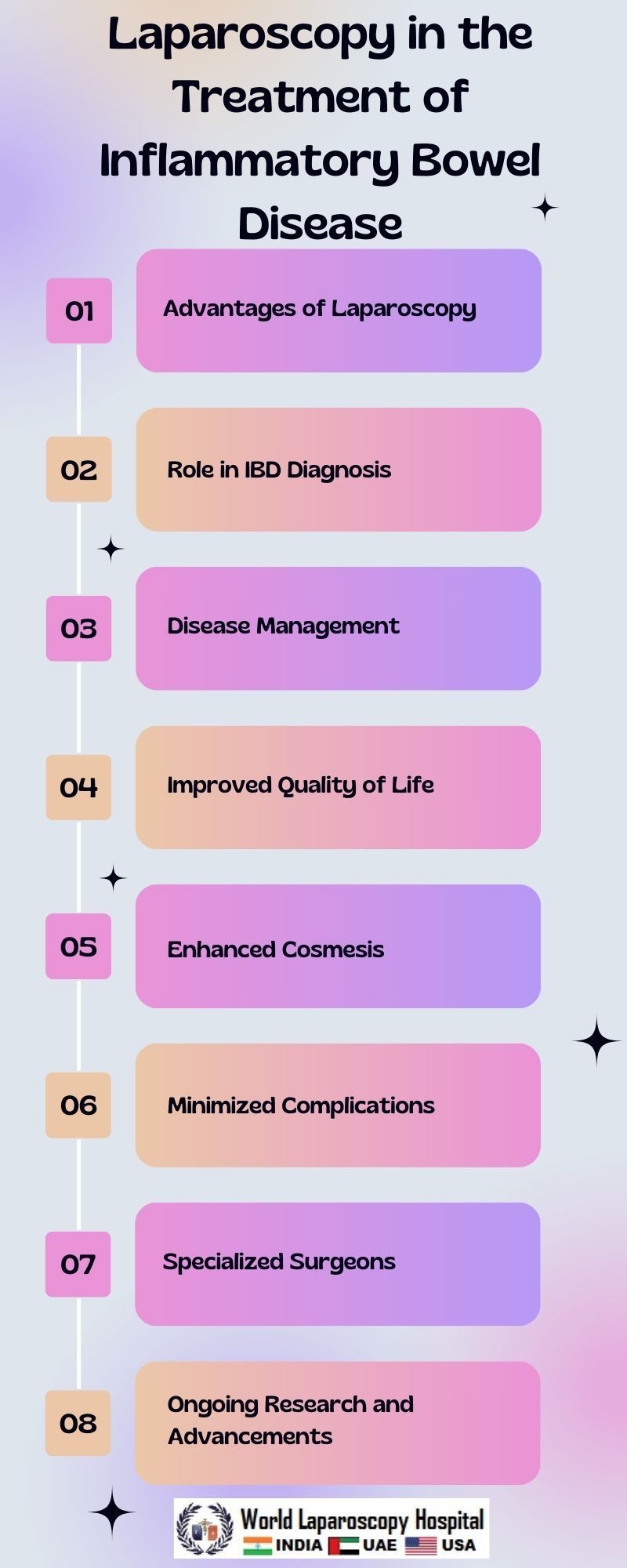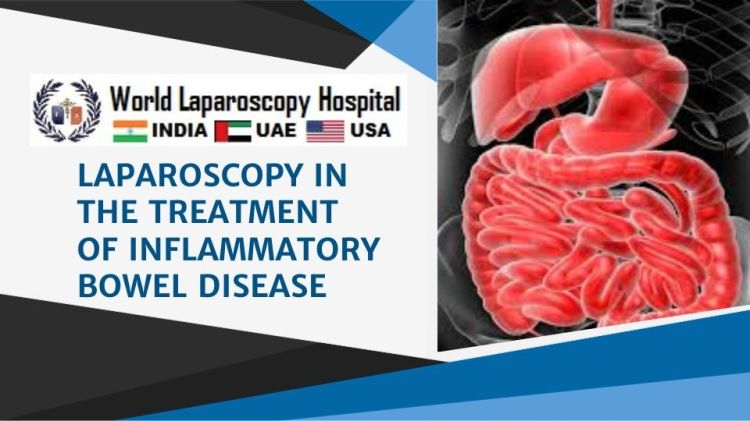Laparoscopy in the Treatment of Inflammatory Bowel Disease
Introduction:
In recent years, the field of surgery has witnessed a transformative shift towards minimally invasive techniques, with laparoscopy emerging as a frontrunner in the treatment of various gastrointestinal disorders. This article delves into the application of laparoscopy in the management of Inflammatory Bowel Disease (IBD), exploring its advantages, evolving techniques, and impact on patient outcomes.

Understanding Inflammatory Bowel Disease:
IBD, comprising Crohn's disease and ulcerative colitis, is a chronic inflammatory condition of the gastrointestinal tract. Traditional surgical interventions for IBD often involved open procedures with substantial incisions, leading to extended recovery periods and increased postoperative complications. Laparoscopy, with its minimally invasive approach, has revolutionized the landscape of IBD treatment.
Evolution of Laparoscopy in IBD:
Historical Context:
Laparoscopy, initially employed for diagnostic purposes, gained traction in the 1980s for its application in various abdominal surgeries. Its introduction to IBD treatment marked a significant departure from conventional open procedures.
Advantages Over Open Surgery:
aparoscopy's key advantages include smaller incisions, reduced blood loss, and a shorter hospital stay. Patients undergoing laparoscopic procedures often experience less pain, leading to a quicker return to daily activities.
Improved Visualization and Precision:
High-definition cameras and specialized instruments enable surgeons to navigate the intricate landscape of the gastrointestinal tract with enhanced precision. This improved visualization aids in the identification and removal of affected tissues, minimizing the risk of recurrence.
Applications of Laparoscopy in IBD Treatment:
Diagnostic Laparoscopy:
Laparoscopy plays a pivotal role in diagnosing IBD by allowing direct visualization of the bowel. This aids in confirming the diagnosis, assessing disease extent, and guiding subsequent treatment decisions.
Laparoscopic Resection:
For cases where surgical intervention is necessary, laparoscopic resection has become a preferred option. This involves the removal of damaged portions of the bowel while preserving healthy tissue, promoting a more conservative approach to surgery.
Strictureplasty:
Laparoscopic strictureplasty, a technique used to widen narrowed segments of the bowel, is gaining popularity. This approach reduces the need for extensive resections, preserving more of the patient's intestine.
Colectomy and Ileal Pouch-Anal Anastomosis (IPAA):
In ulcerative colitis cases, laparoscopic colectomy and IPAA offer a less invasive alternative to open surgery. This approach minimizes scarring, reduces postoperative pain, and maintains the functional integrity of the anal sphincter.
Perianal Disease Management:
Laparoscopy is also employed in addressing perianal manifestations of IBD, such as fistulas and abscesses. By providing a direct view of affected areas, surgeons can implement targeted interventions, improving outcomes for patients with complex disease presentations.
Challenges and Considerations:
Learning Curve:
The adoption of laparoscopy in IBD treatment requires specialized training and a significant learning curve for surgeons. Mastery of advanced techniques is essential to ensure optimal patient outcomes.
Patient Selection:
While laparoscopy is suitable for many IBD cases, patient selection remains crucial. Factors such as disease severity, previous surgeries, and the presence of complications influence the decision to opt for a laparoscopic approach.
Cost Considerations:
Despite its numerous benefits, laparoscopy can be associated with higher initial costs due to specialized equipment and training requirements. However, the potential for reduced postoperative care and shorter hospital stays may offset these expenses in the long run.
Future Directions:
Robot-Assisted Laparoscopy:
The integration of robotic technology into laparoscopic procedures holds promise for further refining the precision and dexterity of surgeons. Robot-assisted laparoscopy may become increasingly prevalent in complex IBD cases.
Enhanced Imaging Modalities:
Advances in imaging technologies, such as fluorescence-guided surgery, are being explored to improve the identification of diseased tissue during laparoscopic procedures. This could enhance the surgeon's ability to achieve complete resection while sparing healthy tissue.
Personalized Medicine and Biomarkers:
The future of IBD treatment may involve a more personalized approach, guided by biomarkers and genetic information. Laparoscopy, in conjunction with evolving diagnostic tools, could play a crucial role in tailoring interventions to individual patient needs.
Conclusion:
Laparoscopy has undeniably transformed the landscape of Inflammatory Bowel Disease treatment, offering patients a less invasive alternative with numerous benefits. From improved visualization to quicker recovery times, the advantages of laparoscopy are reshaping the surgical approach to IBD. As technology continues to advance, and surgeons refine their skills, the role of laparoscopy in IBD treatment is poised to evolve further, contributing to enhanced patient outcomes and a more refined standard of care






